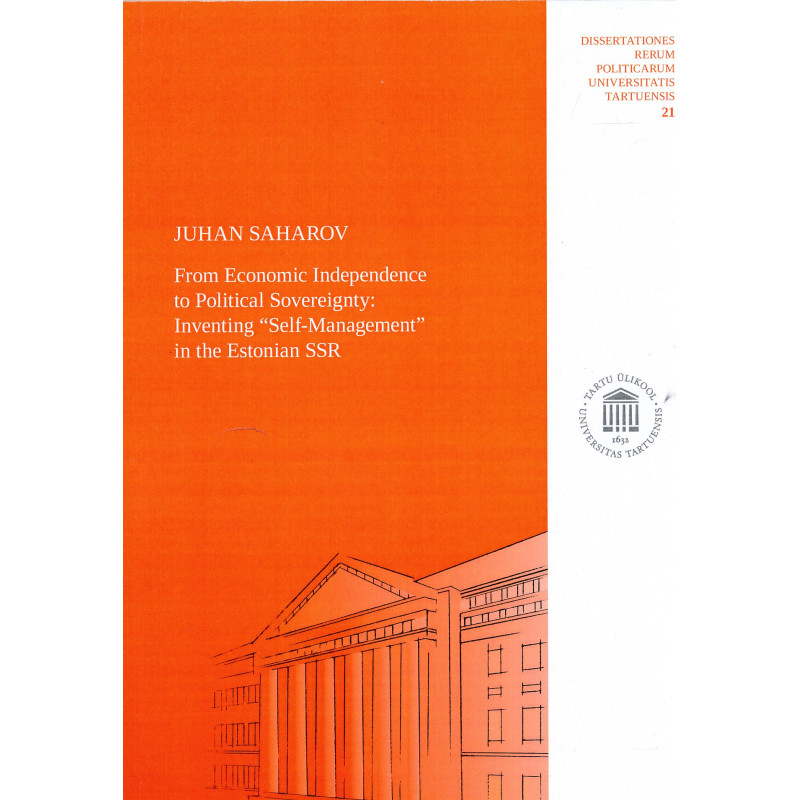



Tartu : University of Tartu Press, 2021
152, [1] p. ; 25 cm
ISBN: 9789949036141
Dissertationes rerum politicarum Universitatis Tartuensis, 1736-4205 ; 21
Paperback new book
Doctoral theses defended at the University of Tartu, summary in Estonian
The dissertation develops a novel methodological approach to studying revolutionary processes, highlighting the value of exploring the dynamics of conceptual change in pre-revolutionary transformative moments. It focuses on the case of the Estonian SSR in the early and mid-perestroika period (1985–1988). The dissertation analyzes the changes that took place in the reform socialist discourse in this period, tracing their links to those in broader Soviet, but also in global discourses since the 1960s. At the same time, the dissertation highlights the uniqueness of the Estonian case, exploring the contextual resources that made possible the conceptual innovations that took place there. The conceptual innovations in Estonia led to the first revolutionary situation (the situation of “dual power”) among the 1989 revolutions in Europe, contributing to the collapse of the Soviet Union in 1991. The dissertation’s thesis is that we can identify specific conceptual processes in pre-revolutionary periods through which specific and technical concepts, derived from an expert-language framework, acquire broader resonance and meaning in society, thus contributing to the rise of a revolutionary situation. The analytical term “conceptual innovation” that the study introduces, designates the conceptual process through which the meaning of a term is radically altered, so that it can eventually serve as a conceptual platform for new political claims. An example of this kind of innovation is the case of “self-management” in September 1987. Uniquely in the Soviet Union, the Estonian SSR witnessed the transformation of the Soviet concept “self-accounting” (in Russian, khozraschet) to territorial “self-management" (in Estonian, isemajandamine). This transformation facilitated radical changes in the political situation in the ESSR in 1987–1988, which further served as an inspiration for a cascade of changes in other Soviet republics. The dissertation proposes a new approach to conceptual history, highlighting the role of “small concepts” in facilitating policymaking, mobilizing different actors, and serving as catalysts for national self-determination.